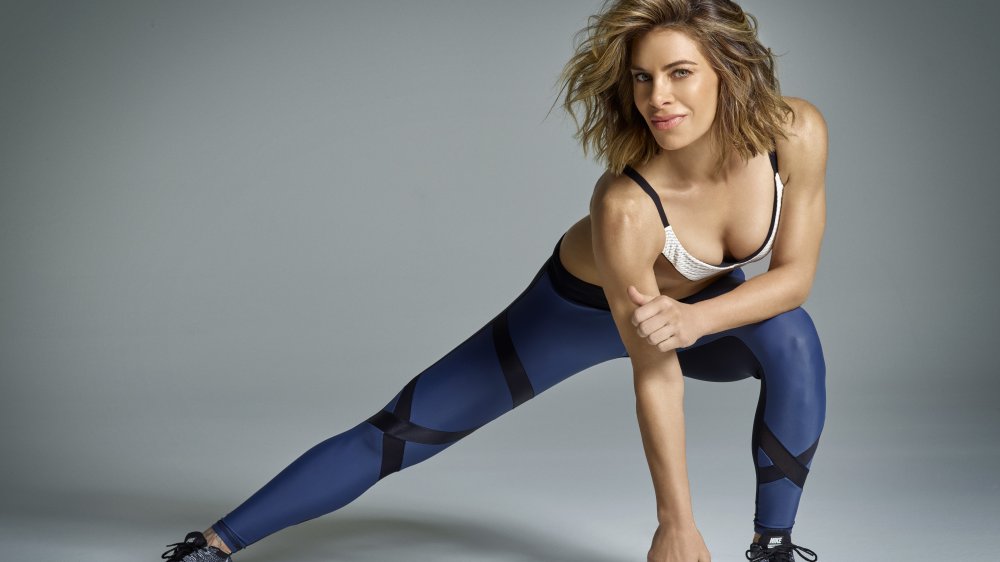Mistakes Everyone Makes With Resistance Bands, According To Jillian Michaels
Whether you work out at the gym, the park, or your very own home, it's likely that you've got your hands on a set of resistance bands. If not, you should invest in some immediately! But according to Jillian Michaels, health and fitness expert and creator of the Jillian Michaels Fitness App (available in iOS, Android, and on the Samsung Health wellness platform), there are some things you should know before you do.
Firstly, it's important that you go for quality over price. "The goal with bands is to maintain constant, consistent tension so a good quality band along with proper form is key," Michaels tells The List. Recommending that you steer clear of any cheap resistance bands, Michaels warns, "Not only can they snap on you and cause serious injury, but they aren't well-made so the resistance isn't even throughout the latex." She continues, "In other words, you may get more tension in different parts of the band making for an awkward and ineffective resistance training session." Her top tip? Look for resistance bands that have been highly recommended, even if that means spending a little more.
Resistance bands should be kept out of direct sunlight
Secondly, when using the resistance band, it's important that you purchase a band anchor, or at least know how to anchor your band wisely in order to prevent injury. "While it's convenient to wrap your band around a pole for an outdoor workout or any hard surface, it can damage the band and again make it more prone to snapping," warns Michaels. The same goes for overstretching the band. "If you feel there isn't enough tension for you to achieve significant muscle fatigue do NOT overstretch the band," Michaels tells The List. "Instead upgrade to a thicker band that provides more resistance."
Lastly, how you store your resistance bands is more important than you think, especially if you want to ensure they stay in the best condition for as long as possible. According to Michaels, this means storing them in a cool place, ensuring they don't lie in direct sunlight. "Heat and directs sunlight break down the latex and make them more prone to snapping," she explains.

